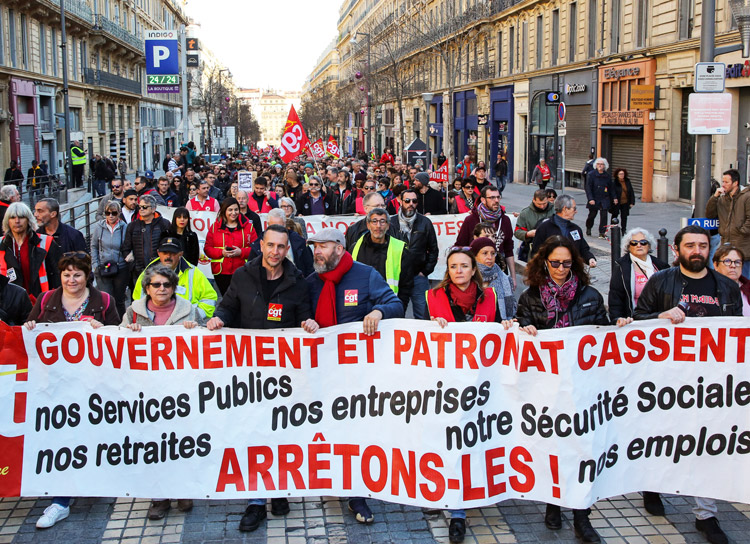PARIS — Sizable demonstrations by the General Confederation of Workers (CGT) and other unions continue in France against the assault on pensions by the government of President Emmanuel Macron. Tens of thousands took to the streets Jan. 11 in a national protest called by four unions — the CGT; Force Ouvriere; FSU, the main teachers’ union; and Solidaire. Some 400,000 workers demonstrated Jan. 9.
Attempting to put an end to the strikes and protests, Prime Minister Edouard Philippe sent a letter to the unions Jan. 11 saying the government was prepared to withdraw its plan to raise the retirement age for full pension benefits, “if certain conditions are met.” But workers don’t trust the government and Philippe’s pledge hasn’t stopped the protests. For rail workers — threatened by Macron to end their early retirement — it’s their longest strike in French history. Many passenger trains are not running, including several of the Paris Metro lines.
Public service workers in transportation, schools and public hospitals have organized mass rallies. More than a third of teachers in France didn’t report to work Jan. 9. The CGT called for a blockade and strike at oil refineries Jan. 7-10.
On the government’s side it’s about “you make out for yourself,” Berenger Cernon, head of the CGT rail local at Paris’ Gare de Lyon station, told the New York Times. “With us, it’s all about solidarity — liberty, equality, fraternity.” Airline workers, fishermen, truck drivers, hospital workers, dockworkers and the dancers and musicians of the Paris Opera — who while on strike have given free performances, including “Swan Lake,” on the steps of the opera house — have joined the fight against Macron’s attacks on pensions.
And there have been demonstrations in many smaller industrial towns and rural areas where yellow vest protests took place last year against anti-working-class measures by the government.


